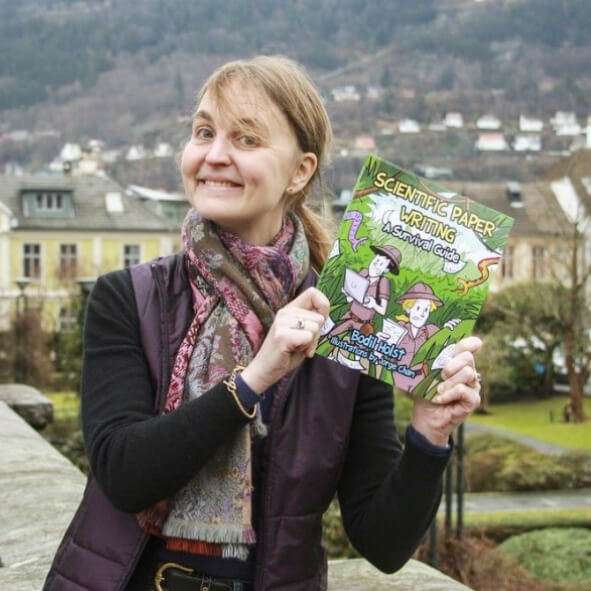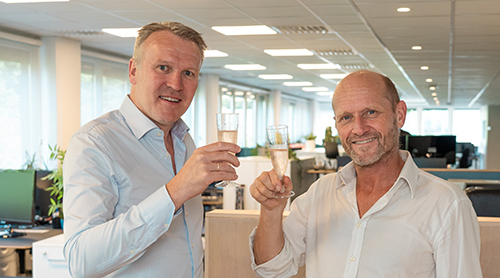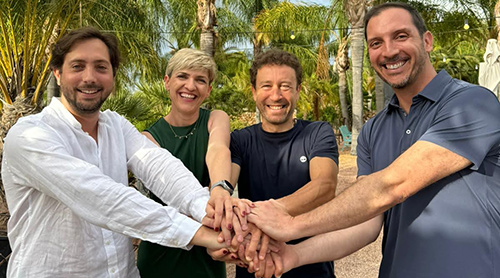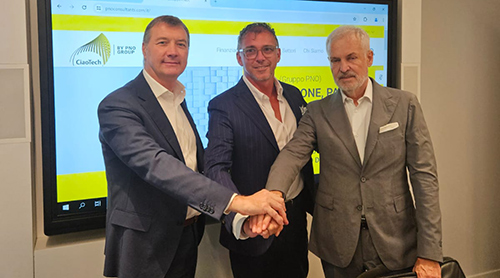Professor on consultancy help for grant writing: “important and decisive”

Professor Bodil Holst believes she has been granted funding in several EU applications thanks to the help she received from consultants.
(This article was published on June 9, 2021 in the Norwegian newspaper for higher education and research Khrono)
“There are several research projects I would not have been granted funding for without consulting help, I am convinced”, physicist and University of Bergen-professor Bodil Holst tells Khrono by phone.
She reacts to how the use of consultants in work with research applications are being discredited, as Khrono wrote about last week. Holst has had very good experiences with the help the consultants have given. In her case, the consulting company PNO, which she has received help from, both through the Norwegian Research Council and later on her own initiative.
“It’s not just help for “blabla”. For the type of research I’m involved in, nanotechnology and partly industry-relevant research, the consultants help with contacts”, says Holst. She adds: “On my third attempt to submit the same application to a major EU call, I was successful after getting help from PNO, which among other things set up an advisory board with several people from European industry. This was only possible because they knew the right contacts. PNO is superb and it was very useful.”
VERY GRATEFUL
With the help of the consultants in PNO, she was granted funding for a so-called Future and Emergent Technologies (FET)-project called NanoLace.
“I am very grateful for the support I have received from the Norwegian Research Council and the University of Bergen in order to get help from consultants. It has really been important and decisive in order for me to receive funding for some very important projects for my research and career, which in the long run will probably also benefit society”, says Holst.
But Holst does agree with many of the issues raised by her research colleagues in Khrono last week, who view the development of using the help of consultants in writing research applications with great skepticism. The three researchers Khrono spoke to meant that the increase in the use of money for this type of consultant help was unlikely to improve the quality or creativity of the research. The three thought that the tax money instead should go to actual research or to building up this type of competence internally at the universities.
Holst admits that she herself is a “convert”.
“I was initially skeptical myself, but I felt that I had a good project, but then it was getting close to deadline day and I didn’t have the time to do the job all by myself. Then I thought I might as well try to get some help with the consulting company and that was that. Now I will definitely continue to use this help”, says Holst.
The University of Bergen-professor admits that there may be circumstances that make her experience of the help from the consultants so good.
“It’s probably a question of chemistry. For me, I got a consultant who had both an overview of the industry in Europe and a lot of experience in my field. She was an important professional sparring partner, and read the application so thoroughly, presumably because she was paid to do just that. I saved a lot of time and we probably saved the university for a lot of money too”, says Holst.
“WORTH SPENDING TAX MONEY ON”
Therefore, Holst believes that the use of consultants to help with writing research applications must be viewed in a more nuanced way. She is herself in favor of universities and colleges building up this type of competence internally, especially when it comes to competence in budgeting and accounting in research projects.
But certain competences are impossible for a university to build up internally, the professor believes.
“It is impossible to build up specific and comprehensive expertise in all possible research areas internally at the university”, says Holst.
When it comes to all the money being spent on consulting companies instead of building competence internally, Holst has this comment: “You have to consider that having full-time employees at, for example, the University of Bergen to do this job also costs a lot of money. That doesn’t necessarily mean it’s an efficient use of money, there are situations where consultants are reasonable to use”, says Holst.
She does not think it’ll always be sensible to spend taxpayers’ money on consultancy help. It will depend on the field and the research, and Holst herself has experienced that it is primarily relevant to use the help of consultants for more application-oriented research. “Re-reading and sparring clarifies the ideas and makes it clearer in my head what the research should do. That’s worth spending taxpayers’ money on. But establishing contacts with the industry is perhaps even more important and something that is absolutely worth paying for”, says Holst.
REACTING TO THE STATEMENT FROM NTNU-TJORA
Professor Holst believes that the debate around research funding and applications often is too narrow and that there are different considerations to be taken in different fields. Among other things, she reacts to a comment NTNU-professor Aksel Tjora had in an article Khrono previously has written about all the money that goes to allocation and applying, instead of on actual research.
Tjora was talking specifically about researchers employed by universities and colleges, and not research institutes when he said the following: “Relax, use your 47 percent research time to write articles, establish book projects or do your own empirical research. The research time is already funded. I must make it clear that there is no expectation of the continuous search for external funding. The expectation is that you will do basic research within your discipline”, Tjora told Khrono.
Holst has the following comment: “I can’t do basic research in my discipline alone in an office”, Holst says, adding: “For the type of research I do, I need funding for equipment, students and often larger collaborative projects are simply necessary to bring in expertise in all the areas needed to bring my ideas to life.”





